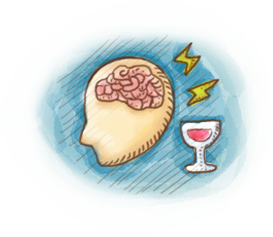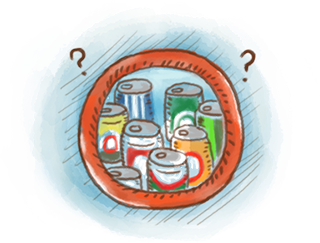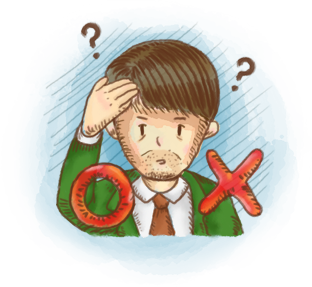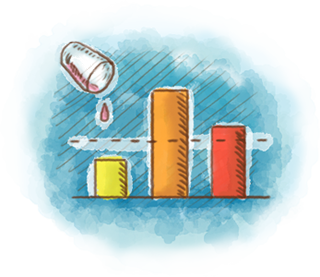I. Acute alcohol poisoning
Excessive amount of alcohol consumed at one go increases the immediate risk of alcoholic poisoning. The symptoms of the acute alcohol poisoning depend on Blood Alcohol Content (BAC), which may include altered emotions, slowing reaction time, unconsciousness etc. It can also lead to coma, breathing difficulties or in life danger.
When someone vomit after drinking too much, the most important thing is to lay them on their side in order to prevent them from choking. If you think someone might be experiencing the alcohol poisoning, you should send them into hospital as soon as possible.
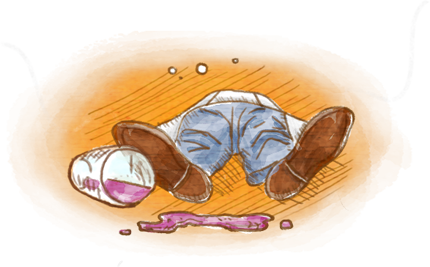
II. Alcoholic withdrawal syndromes
Alcohol withdrawal is influenced by several factors, such as length of time drinking, medical history, mental health status and the use of other drugs in conjunction with alcohol. Alcohol withdrawal is likely to start a few hours after the last drink and the symptoms may include insomnia, fatigue, irregular heart rate, sweating, nausea, anxiety and mood swings. Some people may drink again to cope with the condition. Dangerous withdrawal symptoms include alcohol withdrawal seizure, severe confusion, hallucinations etc. Symptoms generally peak in the second day after the last drink and tend to persist for weeks. Alcohol withdrawal can be fatal. It is important to seek medical attention even if symptoms are seemingly mild.
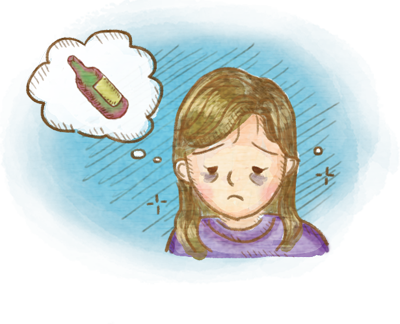
III. Medical treatment for alcoholism
Medical treatment can help to prevent or relieve withdrawal symptoms and may help to prevent alcohol abuser from drinking. Doctor will take into account client’s liver function and age etc. when prescribing medication for the treatment.
Medications for alcoholic withdrawal syndromes
There are medications such as sleeping- pill, tranquilizer, anxiolytic drugs or Vitamin supplement that can relieve the discomfort after stopping drinking.
Medications for mitigating the psychological craving for alcohol
Disulfiram: Designed as a deterrent to drinking. It causes alcohol abuser to suffer from very unpleasant side effects which include sweating, nausea, headache, tachycardia, unconsciousness, coma or even death when even trace amounts of alcohol have been ingested. Disulfiram should be taken under medical supervision and do not drink alcohol while taking it.
Naltrexone: helps to reduce relapse to heavy drinking and improve alcohol abstinence while on medication.
* There is no medicine or one-size-fits-all treatment that can easily get rid of problem drinking. Medication is just part of a comprehensive treatment package, other components like determination, psychological treatment and counseling are essential for successful treatment of problem drinking. If you want to know more about medical treatment for alcoholism, please contact the healthcare professionals.




















